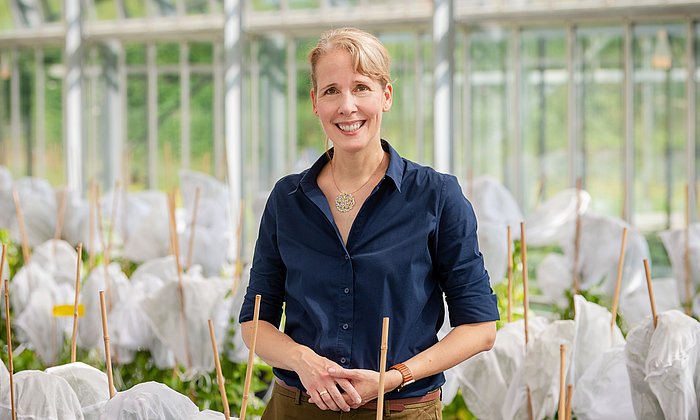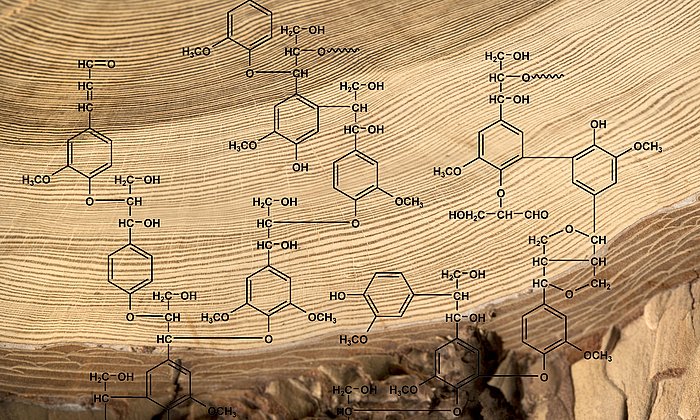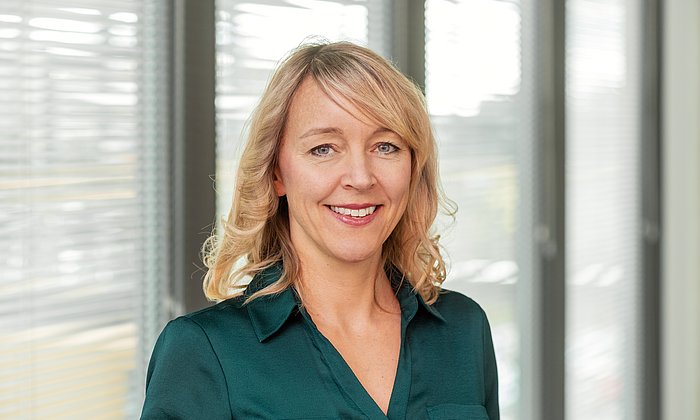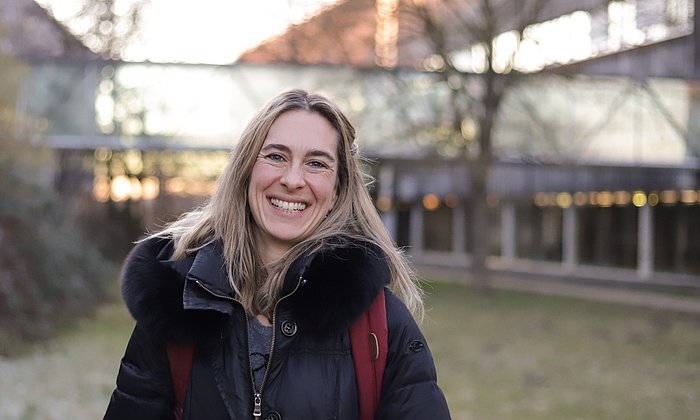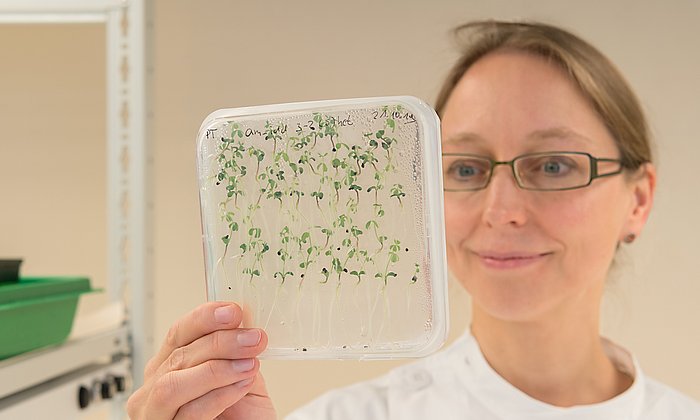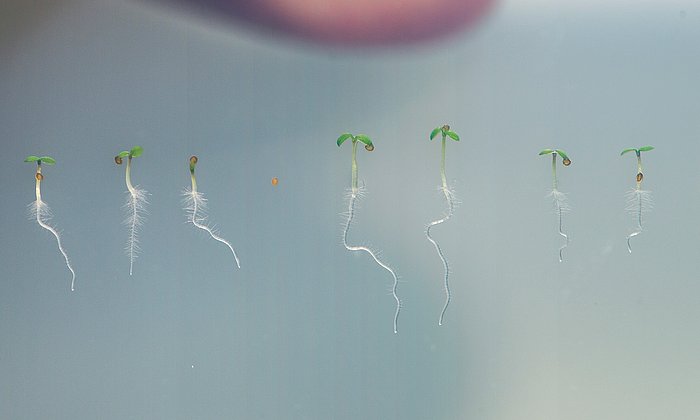TUM@Freising: Lecture on the interaction between microorganisms and plants
Secret helpers in the underground
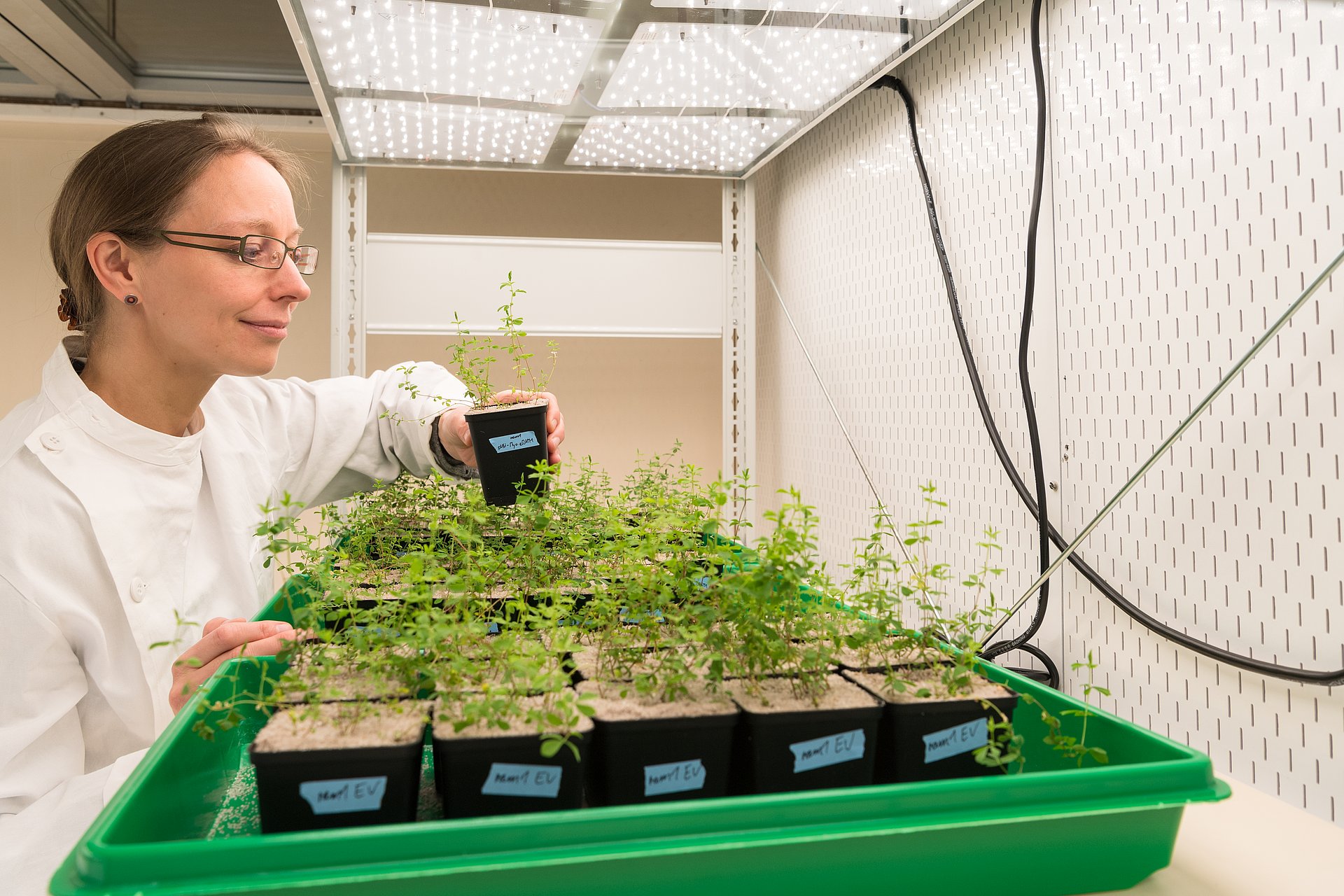
Plants form symbiotic relationships with fungi and bacteria, which colonize the inside of the root. For example, about 80 percent of terrestrial plants harbor arbuscular mycorrhizal fungi - fungi that transport nutrients from the soil directly into plant roots in a branching network of filamentous structures called hyphae. In this way, they improve plant nutrient uptake and in return receive sugars and fats that are produced by the plant from CO2 with the help of photosynthesis.
Symbiosis of plants with fungi and bacteria
Another example of symbiosis with fungi is provided by many trees in temperate and colder climates, which form symbiotic relationships with the so-called ectomycorrhizal fungi. These fungi produce edible fruiting bodies and are found only in symbiosis with certain tree species (e.g., truffles with oak and hazel).
An example of symbiosis with bacteria is provided by a small group of plants, such as legumes, which form symbioses with nitrogen-fixing bacteria. These bacteria live in root nodules, which are formed during root colonization. Nitrogen fixation in their roots makes plants independent of nitrogen in the soil or nitrogen fertilizer.
Deciphering how these symbioses work
Although the symbioses in the soil are difficult to access, modern molecular biology methods allow us to decipher the precise ways in which these symbioses function.
"Much is still unknown, but significant progress has already been made in understanding these symbioses, for example how symbiotic fungi or bacteria communicate with their host plants via chemical compounds, or how nutrients are exchanged", says Caroline Gutjahr, Professor of Plant Genetics at TUM.
Lecture date: Monday, Jan. 31, 2021, 7:00 p.m.
In her lecture, Prof. Caroline Gutjahr will give an insight into the fascinating world of root symbioses. She will explain how to research investigate the functioning of these symbioses and what potential they have, for example to in reducing the use less of artificial fertilizers in sustainable agriculture.
After the online lecture via Zoom (password: 903712), all interested parties are invited to ask their questions to the speaker via the chat function using Zoom. The Q&A session will be moderated by Philipp Benz, Professor of Fungal Biotechnology in Wood Science at TUM.
About the person:
Professor Gutjahr investigates the molecular mechanisms which determine the formation and functioning of the widespread arbuscular mycorrhiza symbiosis between plants and beneficial soil fungi. Her research focuses in particular on the role of plant hormones and transcriptional networks in the development of the symbiosis. The fungus can enhance nutrition and increase stress resistance of plants. For these reasons, there is increasing interest in the use of the fungus in sustainable agricultural practices. Therefore, Professor Gutjahr also investigates the genetic underpinnings of fungus-mediated increases in plant-performance with the aim to enable breeding of mycorrhiza-optimized crops.
Professor Gutjahr studied biology at the Universities of Freiburg and Aberdeen. She then spent one year as a researcher at the University of Turin. Her PhD was started at the University of Geneva and concluded at the University of Lausanne. After a short stay as a postdoctoral researcher in Lausanne, she joined the LMU Munich as leader of a research group. From 2015 to 2021, she was funded by the Emmy Noether Program of the DFG and in 2017 she obtained an ERC starting grant. She has been Professor of Plant Genetics at the TUM since September 2017.
About the series:
The lecture series "TUM@Freising - Science Explained for ALL" is organized by the Technical University of Munich together with the City of Freising. At regular intervals, the TUM School of Life Sciences presents its research in the form of a lecture of interest to lay people. A subsequent discussion with the audience is expressly desired after each lecture. The lecture series is intended to give direct access to the scientific work at the Weihenstephan campus and offers the scientists public input for their research work.
Technical University of Munich
Corporate Communications Center
- Dr. Katharina Baumeister / Susanne Neumann
- katharina.baumeister@tum.de
- presse@tum.de
- Teamwebsite
Contacts to this article:
Prof. Dr. Caroline Gutjahr
Technical University of Munich
Professorship of Plant Genetics
Phone: +49 8161 71-2680
caroline.gutjahr@tum.de
Susanne Neumann
TUM School of Life Sciences
Public Relations
Phone: +49 8161-71-3207
vortragsreihe.freising@ls.tum.de
